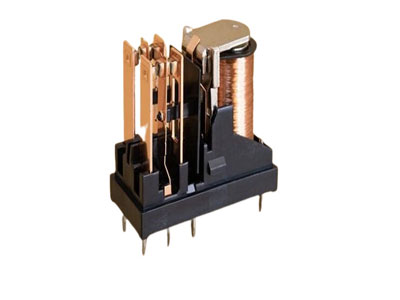Which Coil Is Used In Relay?
Key Takeaway
A relay uses an electromagnet, often referred to as a coil, to operate its internal switching mechanism. When an electrical current passes through the coil, it creates a magnetic field. This magnetic field moves the relay’s contacts, opening or closing the circuit. The electromagnet coil is essential for the relay’s operation, as it allows the relay to control high-power circuits with a low-power signal. This makes relays useful in various applications, including industrial, automotive, and home automation systems.
What Are Relay Coils and Why Do They Matter?
Relay coils are the heart of a relay, responsible for generating the magnetic field that activates the relay’s switching mechanism. When current flows through the coil, it creates a magnetic field that moves an armature, opening or closing the relay contacts. The material and design of the coil significantly impact the relay’s efficiency, reliability, and suitability for various applications. The choice of coil material affects the relay’s electrical and thermal performance, making it a crucial factor in relay design and application.

Copper Coil Relays: Common Uses and Benefits
Copper coils are the most commonly used in relays due to their excellent electrical conductivity and durability. Copper’s high conductivity allows for efficient current flow, reducing energy loss and heat generation. This makes copper coil relays ideal for applications that require high efficiency and reliability, such as industrial machinery, automotive systems, and home appliances. Additionally, copper’s durability ensures a long lifespan, even under demanding conditions. Copper coil relays are favored for their balance of performance, reliability, and cost-effectiveness.
You May Like to Read
Aluminum Coil Relays: When and Where to Use Them
Aluminum coils are an alternative to copper coils, offering distinct advantages in certain applications. While aluminum has lower electrical conductivity compared to copper, it is lighter and more cost-effective. Aluminum coil relays are often used in applications where weight and cost are critical factors, such as in aerospace and some consumer electronics. However, the lower conductivity means that aluminum coils generate more heat, which can be a drawback in high-current applications. Despite this, advances in material science and cooling technologies are expanding the use of aluminum coils in various fields.
Factors Influencing the Choice of Relay Coil Material
Several factors influence the choice of relay coil material, including electrical conductivity, thermal performance, weight, cost, and application-specific requirements. The operating environment also plays a crucial role; for example, high-temperature environments may favor copper coils due to their better heat resistance. Additionally, the current-carrying capacity and mechanical strength required by the application dictate the choice of material. Engineers must balance these factors to select the most suitable coil material that meets performance and budgetary constraints.
When making these decisions, considering Omron relay solutions can provide reliable and efficient options tailored to your specific needs.
How to Determine the Right Coil for Your Relay
Determining the right coil for your relay involves considering the application’s specific requirements. Start by evaluating the electrical load and current-carrying capacity needed. If the application demands high efficiency and durability, copper coils are likely the best choice. For applications where weight and cost are more critical, aluminum coils may be more appropriate. Consider the operating environment, including temperature and humidity, as well as any mechanical stresses the relay might endure. Consulting the relay’s datasheet and manufacturer recommendations can provide further guidance in selecting the appropriate coil material.
Conclusion
Choosing the right coil for your relay is essential for ensuring optimal operation and reliability. Copper and aluminum are the primary materials used, each with its benefits and suitable applications. Copper coils are preferred for their high conductivity and durability, making them ideal for most industrial and automotive applications. Aluminum coils, while less conductive, offer advantages in weight and cost, making them suitable for specific uses where these factors are critical.
When selecting a relay coil, consider the electrical and thermal requirements, the operating environment, and the specific needs of your application. By understanding the properties and benefits of different coil materials, you can make informed decisions that enhance the performance and longevity of your electrical systems. Always refer to manufacturer guidelines and datasheets to ensure compatibility and optimal performance. By carefully considering these factors, you can ensure that your relays operate efficiently and reliably, regardless of the application.
